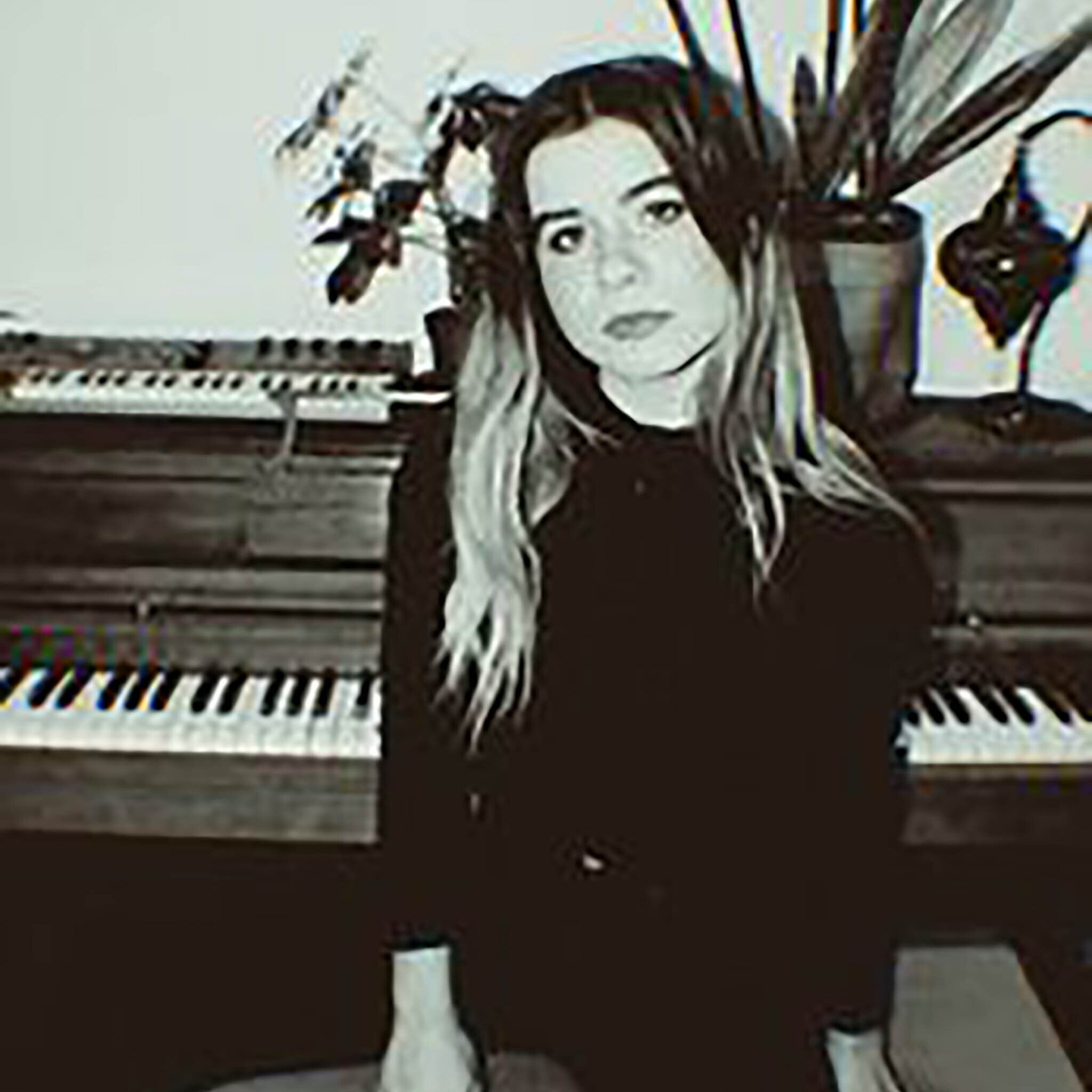Surviving civil unrest, poverty, and prejudice using her grandmother’s name allow’s Mari to reclaim that piece of her that so many people tried to take away.
By, Sarah Tomlinson
Freida Mari’s artwork for her latest release “Easy”. (Courtesy/Aistis Cepinskas)
When she was 14 years old, Freida Mari remembers visiting her grandmother in a nursing home in the evening and on weekends. Her grandmother, Faride Marie, had experienced several strokes that limited her ability to speak and move. As a result, Marie often relied on Arabic, her mother tongue, when she spoke.
One afternoon, Freida visited her grandmother for lunch in the home, sitting in the communal room. While other residents were interacting, Marie joined the conversation, unconsciously speaking in Arabic. Suddenly, one of the female residents turned her head and spat “If you can't speak English don't speak at all.” That was the first time Freida saw her grandmother being silenced.
“I saw it happening in real-time, the racism blatant in her face telling her you are not welcome, do not speak, and just for someone's language being different from one that they were used to,” she said.
Freida glared directly at the woman with piercing eyes, her heartbeat increasing like blood boiling inside her. She remembers the sound of her fallen cutlery echoing across the room as she grabbed her grandmother by the arm.
“Let’s go,” she said.
As a young girl, she didn’t know what to say to her grandmother’s offender. However, the familiar feeling of anger always comes back to her whenever she thinks back to the incident and all the injustices her grandmother faced.
Born in 1928 in Lebanon, Faride was sent off at age 10 to work for a wealthy Parisian family in Beirut, in which all her earnings would go toward the education of her three brothers. After suffering betrayal from a previous partner, she married a man against her parents’ wishes and immigrated to Canada in 1966 with five children. According to Freida, they survived civil unrest, poverty, and prejudice.
“[Toronto] The city was not welcoming to people who immigrated to the country. My family got bullied. My [grandfather] papa drove two hours there two hours back to get to work to provide for his family and people put potatoes in the car engine to make fun of him,” she said. Meanwhile, her grandmother was a maid for a wealthy family in the city.
“That was her life and she did that so her children and grandchildren could have the life that we live now. The end of her life was so unfair because this is a time someone should be able to enjoy it and instead there was more suffering. Yet, she was still so full of life and never complained,” said Freida.
Therefore, when it came to choosing her artist name, Freida instantly thought of claiming her grandmother’s title in order to carry on her legacy.
“I refuse to allow the silencing to continue,” she said. “With music, I can connect with people by connecting with her legacy. It reclaims that piece of her that so many people tried to take away.”
She added that using her grandmother’s name allows her to show gratitude for all the privileges her grandmother enabled for her music.
At age five, she started studying classical piano, taking a break when she was 12 to focus her attention on songwriting and contemporary music.
After contemplating pursuing opera in post-secondary, she was scouted by a major label through a mutual contact and immediately started doing writing sessions in Los Angeles when she was 18.
However, she decided to end her record deal to allow for more self-discovery and growth.
“I was just so young and trying to figure out who I was, then all of a sudden I was working with people twice my age and trying to navigate identity and artist identity,” she explained. “It takes time to be able to separate and allow yourself to grow and evolve without this pressure of being unique.”
Currently unsigned, she said she’s happy with her decision and that it hasn’t limited her ability to create. She said she still writes for other artists, producers and music sync placements in TV and film.
With two singles under her belt, over 150,000 streams on Spotify alone and placements on playlists like New Music Friday and All-New Indie, Freida is gearing up for her third single release in spring of 2021.
Freida Mari sitting at her piano on May.1, 2020 to celebrate the release of her song “Floors”. (Courtesy/Freida Mari)
“I'm trying to grow something from the ground up. It takes a lot of work and a lot of energy. It's easy to feel defeated sometimes and get caught up in toxic measuring. You have to combat that inner voice that's filling your head with doubts,” she said.
Mixing introspective lyrics, breathy vocals and electronic beats, Freida’s music brings an organic flair to alternative pop.
Her first release “Floors”, with over 120,000 streams to date, is a viby electronic track filled with eerie synths and Hip Hop beats that talks about the attachment someone feels towards their partner, leading them back on their “floor”.
She later released a stripped version of the song, allowing her sultry vocals to shine through.
Her latest release is “Easy”. Similar in vibe to “Floors”, the song features edited vocals layered overtop her main vocal, creating a spectral sound supported by a subtle piano line, steady beat and mysterious sound effects.
“I'm just really trying to put one foot in front of the other and tell a story through each of my songs that I hope people can connect to.”
Stream Freida Mari’s music here:


